#writing war
Text
How Authors Write Fictional Wars
Some of our favorite novels include wars. They might stretch over a trilogy or build within a single book. Writing one might seem staggering, but it just takes a different planning approach. Use these tips to write a fictional war for your next story and make your readers feel like it really happened.
Foundational Factors to Consider
1. Your Opposing Sides
Wars always have at least two opposing sides. Start there and develop them before deciding if you need a third or fourth side involved. Cover details like:
What does each side want?
What would each side settle for?
What is each side’s worst-case scenario?
What is each side’s hard no? (What wouldn’t they sacrifice or do to win their cause?)
2. Who Supports the Opposing Sides and Why
As a war progresses, each side loses resources. They start running out of money, soldiers, and whatever public support they had when they started the war due to citizens losing their loved ones or sacrificing for the cause.
Your protagonist and antagonist will need to ask for help eventually. Who would support them and why?
There are numerous reasons why someone might pick one side of a war over another. Politics and economics are often the first things leaders consider. The morality behind each side is another factor.
Consider the American Revolution. Many historians believe America would have lost without France sending money, troops, food, and supplies. Why would France support a budding nation over Great Britain? People argue it was because the French:
Wanted to humiliate the British king
Wanted to hurt their British military rival by partnering with America
Wanted to weaken the British kingdom by ending the colonial taxes they benefited from
Wanted to gain power on a global standing by overcoming Great Britain and rising as America’s first ally
These reasons are great examples of what your novel could include. Another country, kingdom, or group could rise in sudden support for your protagonist or antagonist, ultimately throwing chaos into the determined path of war for better or worse.
3. The War’s Terrain
People can break into battle almost anywhere, depending on your fictional world. Your characters could fight:
On land
On sea
In space
In the air
Underground
Online
Some terrain also comes with other considerations. If your war happens on an ocean, will storms and hurricanes affect battles or the ultimate outcome? How will the soldiers and leaders on both sides deal with the weather?
Note these possibilities as you plan your novel. You can add them in as background or crucial plot devices once you have a skeletal structure in place for your story.
Need help remembering everything you’ve imagined? Try making a map and keeping it wherever you write.
4. What Would Make Each Side More or Less Powerful
There’s always something that could give one side an advantage over the other. It’s often in an unexpected way, although you could make the advantage a goal. The bad guys might feel confident in their ability to win, but they have a secret mission to develop a new weapon just to give them a greater advantage.
Other factors to consider would be one side or another doing something like:
Discovering or enacting a magic system
Eliminating a crucial resource their enemy depends on
Removing funding that makes their enemy able to fight by befriending or overcoming their enemy’s financial backers
Changing the positive or negative public perception of the other side’s reason for fighting to change national morale
Doing something that makes one side’s leaders more or less moral (which could change public perception, the soldiers’ vigor, the leadership’s advisory team together, etc.)
6. What Kinds of Conflict You’ll Write
There are two types of basic conflict you’ll likely write when navigating a fictional war. You may not need both if your story is shorter, but adding both makes the plot more realistic.
First, there’s external conflict. You’ll have at least two opposing sides on some kind of battlefield, sneaking around on spy missions, planning surprise attacks, etc.
Secondly, there’s internal conflict. Soldiers might start fighting amongst each other, people in leadership positions could lose trust in each other, citizens might turn on their country’s cause for one reason or another, etc.
7. What Weaponry Your Characters Will Use
The weapons used in your war depend on numerous factors. It will draw from the genre you’re writing, the time period your story takes place, the advancements made in each civilization’s weaponry prior to the war, and any advancements made while the war goes on.
Examples of these could be:
Guns
Swords
Bows
Bombs
Drones
Armed ships
Armed space ships
You should also consider if one side’s weaponry is more likely to change during the course of the war. That’s more plausible if your story or characters change locations where regional cultures use different weapons. Also if the war spans years, people will naturally develop new weaponry during that time.
If you want extra details to daydream about, think about which weapons will become outdated during your story. Some will prove less useful due to complicated usage or cleaning. They also may not work, like if your science fiction characters follow their enemy underwater, but their laser guns require a dry atmosphere to function.
Include Emotional Plot Arcs
Writing always involves some kind of emotional work that results in a plot arc. It keeps the reader engaged by evoking their core feelings. That’s what makes a novel different from a textbook (in a very basic sense).
Work on details like these to find what emotions will be most present and relevant to your story:
Your overall theme
Your characters and what they experience
The action your characters will go through
How the above action will change your characters by affecting their loved ones
What your characters’ goals mean to them emotionally
If your characters’ will undergo things that change their perception of their world, leaders, country, or themselves
You don’t need all of these things to have an emotional plot arc, but they’re relatable human elements that can drive your plot right into your readers’ hearts.
Avoid Some War Story Tropes
Tropes have a bad reputation that I don’t think is entirely deserved. People recognize them as overdone stereotypes, but sometimes they’re useful.
When you’re writing a war, you’re going to have necessary tropes like:
The hero
The unit or squad
The antagonist
What they undergo and who they become is how you make them fresh concepts for your readers.
Some tropes aren’t helpful because they’re what readers expect from every story. If you give them what they expect, your story isn’t as engaging (unless you get the occasional reader who exclusively reads war novels and never tires of overdone tropes).
Keep these in mind as things to avoid, unless you have an ingenious way to make them a brand-new experience:
One soldier dying in another’s arms
A character dying by going out “in a blaze of glory”
Characters using guns in ways that are obviously wrong (i.e., firing more bullets than the gun-type/model holds)
Getting military rank incorrect (if your characters exist in a real-world, already existing military structure)
Injury-proof characters (even your protagonist will eventually encounter some physical harm, whether it’s illness in bad weather or getting shot on a battlefield)
You can check out this great resource to discover more tropes to avoid/consider as you draft your plot outline.
-----
If it feels like writing a war over the course of a book or a series is challenging, you’re not alone. There’s a lot to consider to make it have an engaging flow.
Keep notes on things like these to develop your story as much as possible before starting your first draft. You can always go back and add or edit things out as needed while developing it. Writers do this all the time—you don’t need to get any manuscript perfect on your first try.
#writing war#writing warfare#writeblr#writing advice#writing tips#writers of tumblr#creative writing#writing#writing inspiration#writing community#writing help#writing resources#writing action#writing conflict#writing batlles
537 notes
·
View notes
Text
Conducting a War
So, your story takes place during a war. Maybe your characters are experiencing war or maybe they're waging war against other characters or groups. Likely, you are not a general or expert in warfare. How do you write a story that is set during a war?
Who's fighting who?
The first, most obvious, step is to know who is fighting whom and why. Wars are between groups of people. They can be a small clan, a massive nation, or even an entire planet or galaxy. Two characters fighting it out are not considered "at war" because they are representing themselves and settling an individual dispute, even if it is a high-stakes dispute.
Why are the parties in your story fighting? There are a lot of different reasons why two groups of people would go to war against each other, but most wars are over resources at their center. Disputes over land and borders, over who gets what crops and for what price, and even religious wars are usually about the resources available and scarcity. So when you're talking about war, you need to know what either side wants. Just like a character, your war parties need to have desires and stakes.
"Resources" can mean just about anything that society needs. Food, fresh water, opportunities for trade, minerals, metals, building materials, and wealth are all examples of resources your war parties can fight over.
What does it take to wage war?
Wars require resources too. It's not just about getting resources but spending resources as well. When nations go to war in the real world, there are opportunities for people to make exorbitant amounts of money and wealth by taking advantage of a wartime economy.
The parties waging war need people to fight their battles. They need to pay those people, arm them, feed and clothe them, and transport them to where they need to be. Where does the government or person in charge get the food, armor, weapons, and transportation? Where do they allocate those scarce resources? Oftentimes in war, those in charge must make sacrifices. Is there a portion of land that the person in charge gives up to protect another portion with their limited resources?
There are unlimited stories hidden in these questions, and a large base of world-building will help to answer these questions in depth. There are many opportunities for tension and rising stakes for your war parties in the event that the opposing side makes acquiring war resources difficult or impossible.
Types of Armies
Your armies tell you a lot about the resources available to your characters and how you can build your story and plot line around the war. So I'll discuss the differences between four types of armies that exist in the real world and throughout history. These are examples; you can change or twist these examples however best suits your story.
The first is a professional army. These guys are paid and trained by the state; being in the army is their entire job. The army can fill a number of different roles other than fighting, but their purpose is to provide martial protection to the people of their nation and carry out martial orders from the government or sovereign entity in charge. Important aspects of a professional army to consider: these soldiers are paid for their work, they are trained by professionals, and oftentimes they follow a hierarchy or chain of command. Most governments provide medical care to their professional armies, but this isn't required. The soldiers can be conscripted or voluntary.
Next up is a mercenary army. This army is also paid for their services, but they are not trained by the state, and they ultimately take their orders from the organization, not the government. The government commissions the mercenary army for their services. The government does not provide most of the resources required to maintain an army. They pay for the army but don't necessarily feed, arm, or clothe them.
A fyrd is a historical term that refers specifically to the Anglo-Saxon armies raised by different Lords and Thegns to protect their lands and shires. These armies consisted of civilians and able-bodied free men from the local settlements and farms gathered by the ealdorman. They were conscripted into the service, and they lacked formal martial training. Also, importantly, their provisions and weapons were provided by the soldiers themselves. Meaning you will see fewer long swords and forged weapons for the purposes of fighting and more axes and improvised weaponry. The purposes of the improvised weaponry are primarily as other tools, such as axes for chopping wood and knives for butchery. Any horses or mules brought along for work or fighting are the property of the lords or farm owners who provided them.
A militia is very similar to a fyrd; this army consists of civilians who are paid or conscripted into service by the government but are not professional soldiers. These militias may sometimes have training from professional soldiers among their ranks, but mostly they are civilians training themselves. The soldiers provide their provisions, weaponry, and armor, meaning that the wealth has to come from the soldiers and their professional jobs and not from their martial services. The militia is a more modern term, but it is marginally different in that most militias we think of today are voluntary and not conscripted.
Battle Strategy
This is where a little research may help you. Battles behave differently depending on different factors. What technology and weaponry is available to your war parties? Are we talking about bladed weapons or guns or lasers? Is your army a professional or mercenary army, or is it more like a fyrd or militia?
When setting up a battle in your story, focus on the differences between the two armies and how that may affect their strategy toward fighting or engaging the enemy. If your fyrd faces a professional army, they may encounter some problems regarding weaponry and armor. Your fyrd will struggle to match a professional army in defending against well-made weapons and professional training. How do they work to compensate for those weaknesses?
When looking at two equally armed and trained armies, a general or battle strategist will look to the terrain to plan a battle. Generally, controlling the high ground helps in battles. If one army has a heavy cavalry presence, your opposing army may want anti-cavalry measures in place. Do they have the space to do so? Urban areas will lend themselves well to guerilla-style and urban warfare tactics. Jungles and forests will look different to hills and plains, and deserts bring unique problems to a battle that a mountainous terrain might not.
What is the battle for? Battles have a purpose; otherwise, there would be no value to the loss of troops. What is worth the risk of losing lives? Does the battle have stakes? Some stakes that might be worth conducting a battle over include taking control of a river pass, allowing naval trade and travel, cutting off control of a trade route to the enemy, or invading an important town or city to process and refine necessary materials.
Ending the War
The war will eventually end if your characters are lucky. But what ends a war? Wars usually end with agreements between the two opposing parties following surrender or extension of peaceful negotiations. Negotiating what each party needs or wants is an art in and of itself. Each party must come to the agreement that waging war further is more expensive and less rewarding than ending violent opposition with concessions made by either side.
Conclusion
Wars and battles are like characters; they have needs, desires, and stakes. Writing your characters in a war or battle will hinge on the needs and stakes of the greater war and story. Important questions to ask are: what are we fighting for? Who are we fighting? And what happens if we don't fight?
–Indy
#writing advice#writing tips#writing resources#writeblr#amwriting#writblr#writers of tumblr#writers on tumblr#writing help#writing guide#on writing#creative writing#writing#writers#writing about war#writing war#writing warfare#writing battle strategy#writing battle planning
925 notes
·
View notes
Text
[EPISODE 12] - WRITING WAR (OR, ALL OF US ARE GOING TO GENEVA)
Yay! We have a new episode out!
Today, in honour of Remembrance Day, Lani (@copper-dust) and Jo (@pebblysand) have a chat about war. Specifically, they discuss how to research war, write war, and explore the aftermath of war in fanfiction. They talk about what they find interesting about it, what drives them to write about it, and how they use these armed conflict situations to paint a picture of the broader world we live in. Please note that this episode does contain discussions of war-related violence - nothing graphic but still, if that’s not your thing, feel free to pass.
This week, we mention:
Merry Men, Check the Spindle and Storge by @copper-dust
castles and slipped by @pebblysand
Jo’s post about a broader definition of war
Fluorescentgrey’s historical AUs
This scene from Peaky Blinders
Jo’s post about right and wrong in Castles
Your recommendations for this week are:
The Regeneration Trilogy by Pat Barker because it's great example of historical fiction based on WW1
Achilles in Vietnam by Jonathan Shay because it offers an interesting take on the war in Vietnam and trauma
Ender’s Game by Orson Scott Card because it's an fascinating example of a sci-fi/fantasy war
Peaky Blinders by Steven Knight and the BBC because maybe then Jo will finally shut up about this show
You can find us online at:
The Fanfic Writer’s Craft: tumblr ; spotify
Lani (@copper-dust): tumblr ; AO3
Jo (@pebblysand): tumblr ; AO3
#fanfics#fandom#fiction#fanfic#fanfiction#fanfiction podcast#writing war#armed conflicts#creative writing#writing advice#writing life#writing#writer#writers of tumblr#ao3 writer#ao3fic#writeblr#Spotify
9 notes
·
View notes
Text
it's always so fascinating and heartbreaking when a character in a story is simultaneously idolized and abused. a chosen prophet destined for martyrdom. a child prodigy forced to grow up too fast. a powerful warrior raised as nothing but a weapon. there's just something so uniquely messed up about singing someone's praises whilst destroying them.
#writing#writing prompt#tropes#reading#books#book tropes#angst prompt#angst#booklr#writeblr#writers on tumblr#percy jackson#the poppy war#mythology#chosen one#atla#avatar#avatar the last airbender#bungou stray dogs#yosano akiko#anime#my hero academia#todoroki shoto#neon genesis evangelion#the hunger games#10k#20k#30k#50k#100k
101K notes
·
View notes
Text
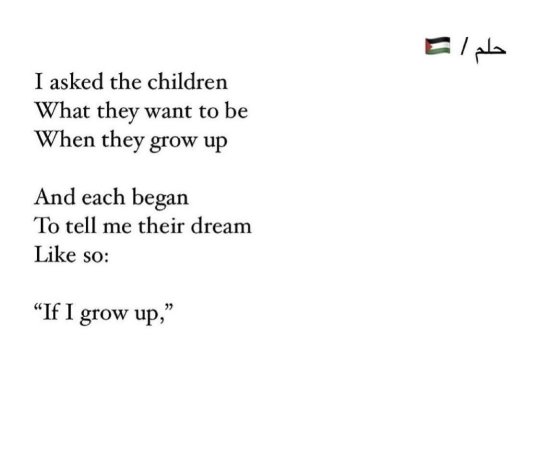
18K notes
·
View notes
Text
"boop war" this and "tumblr pvp" that. are we not all bonding? have you not met people you would have never heard of? do you not look at the url of the stranger who booped you and think wow, i just met someone who thought of me, even if its just for a boop, before hitting the boop button on them as well? do you not gain joy from this? even in the heat of battle, our humanity shows itself. we glance into the eyes of an opponent who holds our gaze ever so slightly too long for someone who's supposed to be an unfeeling soldier and we think to ourselves i'll miss you, stranger before we inflict a killing blow. the boops show us we're human
#pixell.txt#boop#boop o meter#boop war#textposts#idk what this post is honestly. i blacked out while writing it and suddenly there's words on my screen /j
13K notes
·
View notes
Text
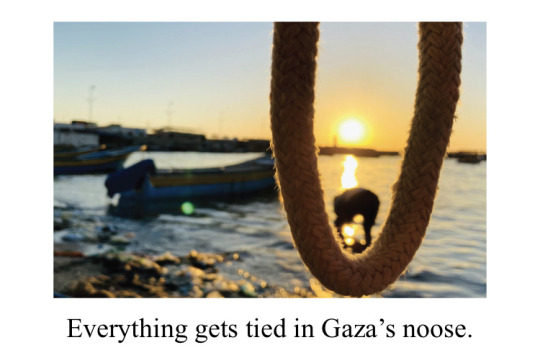
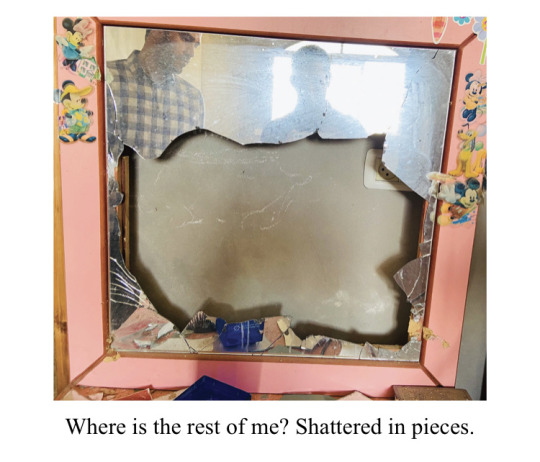
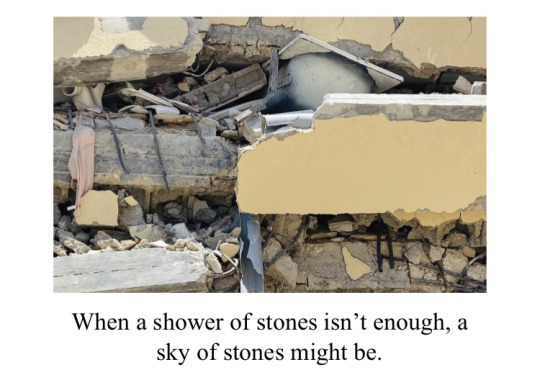
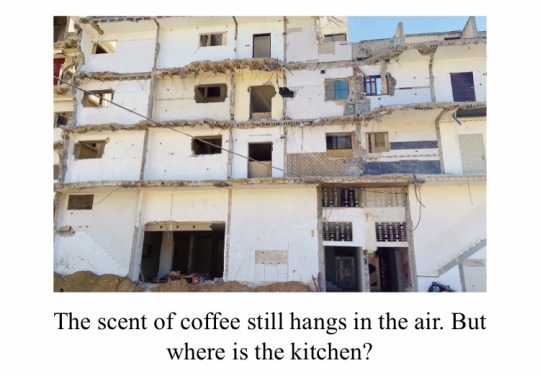

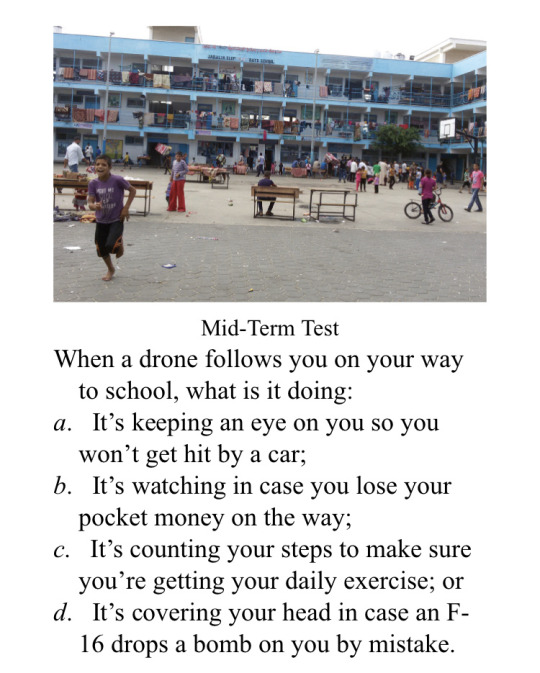



Mosab Abu Toha, from Things You May Find Hidden in My Ear: Poems from Gaza
#mosab abu toha#palestinian literature#photographs#grief#loss#death#war#excerpts#writings#literature#poetry#fragments#selections#words#quotes#poetry collection#typography
18K notes
·
View notes
Text
Christmas Movie, but it's from the perspective of Jesus Christ, who sneaks back to Earth, and is immediately confused why everyone is celebrating his birthday in December.
He wanders into a Megachurch on accident, thinking it was a mini mall, and hears an evangelist (who lives in a mansion) taking the Lord's name in Vain to guilt donations out of people. Then he gets arrested for rushing the stage and beating that guy with a whip.
A significant chunk of the movie is just his elaborate escape from prison, wherein he starts a riot upon learning how cruelly the prisoners are treated by a blasphemous carceral system.
The movie ends with him using God Magic on the president of the US, and being formally declared the Anti Christ by the Catholic Church
#shitpost#shitposting#war on christmas#anti christianity#anti usa#prison abolition#my text#my writing
16K notes
·
View notes
Text
me writing angst: haha this is fun I hope someone cries reading it
me when my favorite show has even the slightest bit of angst: OH NO
#looking at u bad batch#or better yet the entirety of star wars#shitpost#meme#writing memes#writer stuff#writing
5K notes
·
View notes
Text
Comprehensive Lexicon Guide for First-Time SW Fic Readers:
Flimsi/Flimsiplast = Paper
Flimsiwork/Datawork = Paperwork
Stylus = Pen
Datapad = Tablet
Comlink/Comm = Communication Device/Phone
Binders = Handcuffs
Chronometer = Clock
Spectacles = Eyeglasses
Chrono = Watch
Conservator = Refrigerator
Caf = Coffee
Nerfburger = Hamburger
Blue milk = Milk (literally blue)
Hubba chips = French Fries
Sweet roll = Doughnut
Flatcakes = Pancakes
Tabac = Tobacco
HoloNet = World Wide Web
Holovision/HoloTV = Television
Holodrama/Holovids = Movie/Videos
Holocamera/Holocam = Camera
Holomap = three-dimensional map
Holojournal = Newspaper
Holocube = Picture frame
Holotable = Projector
Holoscanner = X-ray machine
Holojournalist = Reporter
Flatholo/Holograph = Photograph
Sonic Damper = Active Noise Cancellation
Refresher/Fresher= Bathroom
Sonic Bath = Bath
Sanisteam/Sonic shower = Waterless Shower
Hydrospanner = Wrench
Hydro Flask = Water Bottle
Power Cell/Energy Cell = Batteries
Authorization Chip = Decryption key
Datatape = Disk
Datastick = Flash drive
(Personal) Com Code = Phone number
Datachip = SD Card
Synthflesh = Synthetic skin
Glowrod = Flashlight
Sparkstick = Match
Slugthrower = Gun
Slug = Bullet
Vibroblade = a blade that can vibrate at high frequencies, increasing its cutting power and penetrating ability (tactical knife)
Rangefinder = Rifle scope
Turbolaser = Cannon
Ion pike/Vibropike = Spear
Electro Staff = Stun baton
Blaster = Pistol/Rifle
Stun Blaster = similar to a Taser
Landspeeder/Airspeeder/Speeder = Car
Turbolift = Elevator
Slideramp = Escalator
Starfighter = Fighter jet
Rotorcraft = Helicopter
Hoverpack/Jetpack= Jet pack
Speeder Bike = Motorcycle
Skylane = Traffic lane
Railspeeder/Hovertrain = Train
Power Chair/Hoverchair= Wheelchair
Windscreen = Windshield
Podracing = Car racing
Dejarik = Chess
Sabacc = Poker and Blackjack combined
Galactic Rebels = Combat simulator
B'shingh = Dungeons and dragons
Jizz = Jazz music
Wailer = Singer (ie. Jizz Wailer)
Cantina = Bar or Pup
Para Sailing = Paragliding
Aurebesh = Alphabet
Credits = Money
Sleeping Pallet = Bedroll
Naming Day = Birthday
Youngling = Child
Galactic Basic Standard/ Basic = English
Medkit/Medpac = First aid kit
Hypo = Syringe
Medic/Healer = Doctor
Medcenter = Hospital
Bactapatch = Bandaid
Nanoweave = Fabric
Transparisteel = Glass
Plastifoam = Packing material
Durasteel = Steel
Plasteel = Plastic
Duracrete = Concrete
Slicer = Hacker (slicing = hacking)
Identikit = Passport
Minder = Therapist
Synthleather = Vinyl
Viewport = Window
Cooling Unit = Air-conditioning
Honeydarter = Bee
Slythmonger = Drugdealer
Spice = Drugs
Stimpill = Caffeine pill
Power Socket = Plug
Cutters = Scissors
Cycle = Day
Standard Cycle = 24h
Standard Week = 5 days
Standard Month = 35 standard days
Standard Year = approx. ten months
Tenday = literally ten days
Cigarras/Smokes = Cigarettes
Click = Kilometer or 'a moment'
Parsec = a unit of distance
Tweezers/Clanker/tin head/tinnie = Droid
Separatist = Seppie
Promise Ring = Wedding Ring
Body Glove = Jumpsuit
Slicksuit = Wet suit
Civvies = Civilian clothing
Carbonite = a metal alloy used to freeze a person in a state of hibernation
Hyperdrive = device that allows a starship to travel faster than lightspeed
Moisture vaporator = device that can extract water from the air, commonly used on tatooine
Glareshades = Sunglasses
Gasser = Gas Oven
Repulsorlift = technology that can create an anti-gravity field and is used for levitating heavy objects
Heating unit = Heater
Utility Droid = Roomba
Sunbonnet = a Clone trooper helmet
Bad Batcher = a defective Clone Trooper
Banthabrain = birdbrain/ a stupid person
Bantha fodder = waste of space/nonsense
Blast! = word of exclamation
Blasted! = s.o in anger or annoyance
Blaster-brained = dimwitted
Blaster fodder = cannon fodder
Blast off = Piss off
Brainless = Stupid
Bug/Bugger = used to refer to Geonosians
Forceforsaken = godforsaken
Full of Poodoo = full of shit
Poodoo = Shit
Kriff = Fuck
Jedi scum = derogatory term for jedi
Kark = derogatory expletive
Larty = LAAT/i gunship
Laserbrain = insult
Meat droid = derogatory term for Clone Troopers
Redrobes = Palpatines guard
Rookie/Shinie = newly recruited Trooper
Scum = insult to refer to bounty hunters/rebels
Sharpie = Sharp-witted
Sithspawn/Sithspit/Hellspawn! = expletive
Sleemo = Slimeball
Son of a bantha = insult
Wizard! = Cool
Spaced = dead
Hutt-spawn = Bastard
Karabast = exclamation of dismay
Stang = Crap
Buckethead/Bucketbrain = derogatory term for Stormtroopers
Bucket = Helmet
Nat-born = Natural Born
Roger Roger = affirmative/copy that
Droid poppers = EMP grenade
Sitrep = short for situation report
Backwater Planet = any planet that isn't part of the core system
Holocron = device that can project a three-dimensional image of a person/object and is used for communication or entertainment.
Kessel Run = a risky Operation. Commonly used as a metaphor in impossible situations.
Thermal Detonator= device that can create a powerful explosion like a grenade or bomb
Ray Shield/Energy Shield = creates a (protective) barrier
Rebreather = device that allows a person to breathe underwater or in toxic environments
Phrases:
Wild goose chase = wild bantha chase
That's bantha shit = that's bullshit
As slippery as a greased Dug = untrustworthy
Credit for your thoughts = penny for your thoughts
Cut the poodoo = cut the crap
to get your gills in a twist = get upset about something
Holy mother of meteors = holy mother of god
Oh my skies/ Oh my stars = exclamation of surprise
Stars' end! = exclamation of disbelief
What in the blue blazes = exclamation
When Geonosis freezes over/When it snows on tatooine = extremely unlikely
Who pissed in your power supply = who pissed you off
Blast it = damn it
By the maker = exclamation of surprise
Great karking Dragon = expression of disbelief
Lothcat got your tongue = equivalent of 'cat got your tongue?'
Sod it = expression of frustration
#shitpost incoming#I'm converting my friend into a star wars fan so I thought why not make a dictionary for every new fic reader lmao#star wars#writing star wars#star wars languages#star wars lore#im definitely missing some but these are words I've seen most commonly used in fanfic#userlumi#writing star wars fic#aurebesh#galactic basic Standard#as long as one person finds this post helpful it was worth it#youre all welcome to add to it#im stopping now coz otherwise I'mma clog the dash
5K notes
·
View notes
Text
I feel like people miss the point of the "war is bad" message
What it's supposed to mean is that war is terrible, it's destructive, it ruins lives, it leaves scars, and you should only partake in it when there are no other options, because even if you win, even if you survive, you will not be the same, which is why the phrase used to be more commonly known as "war is hell"
But "war is bad" seems to have been construed by people in fandom into "any fighting is bad, if you fight you're morally terrible and impure, you should not fight at all, no matter what", this is annoying in fandom, as it often misses the point fiction is trying to make, but what's worrisome is when people apply this to real life, as I have seen people do regarding russia's invasion of Ukraine
And that's almost never the point of "War is Bad" works
Works like Lord of the Rings, Avatar The Last Airbender, Transformers, The Clone Wars, Halo (especially Reach), etc all have themes on how horrible war is, but they categorically do not say it is wrong to fight, what they say is usually along the lines of "war is terrible, and what makes it so terrible is that we have no choice but to fight, it would be ideal if we didn't have to fight at all, but we must fight, because not fighting is not an option, because not fighting, not opposing tyranny, conquest, and evil only allows those things to exist unimpeded"
#wooloo-writes#wooloo writes#war#war is hell#war is bad#lord of the rings#sw#star wars#lotr#avatar the last airbender#atla#transformers#tf#tcw#star wars the clone wars#sw tcw#halo#halo reach
3K notes
·
View notes
Text

Note: Since my old masterlist is getting notes again (and I'm hosting @tbb-appreciation-week this year), I thought it's a good time to release a new version with a lot more resources. If any of you know another site or thing that it's missing from the list, let me know and I'll include it!! [Altho, I'm getting this close 🤏 to the hyperlinks limit on this thing 😆]
Note 2: To avoid tagging the 3 people from whom I got multiple resources repeatedly, I've placed 1-3 asterisks between square brackets after the links, depending on the OP. I give the respective credit to them in a legend at the end of the post.
PLACES / TIME
Interactive Galaxy Map by Henry Bernberg
Map of the Galaxy
List of planets and moons [Wikipedia /needs expanding]
Planet Name Generator 1 [SciFi Ideas]
Planetary System Generator [Donjon]
Tatooine Location References [*]
Various locations Cross-Sections (Jedi Temple, Palp's office, Tipoca City & more) [**]
Republic - Separatist - Hutt space during the Clone Wars
Hyperspace Travel Times (to calculate how much time would take to go from point A to point B within the GFFA)
Standard Calendar and Holidays [including month names!]
Galactic Standard Calendar [wookiepedia // including week day names]
Date converter according to SWTOR [Google sheet]
Dated Star Wars Chronological Order (Movies + live-action shows + animation)
TCW Chronological Timeline by @mauvrix
Estimated date for: shared by @spectres-fulcrum
Partisans' attack on Onderon
Siege of Lasan
CHARACTER DEVELOPMENT
General
Star Wars Name Generator 1 [Donjon]
Star Wars OC flow chart by @thefoodwiththedood
Star Wars Name Generator 2 [FantasyNames]
Star Wars Name Generator 3 [FantasyNames]
MetaHuman [Unreal Engine]
The character creator
Droid Name Generator
Star Wars Randomizer by @aureutr
Character Picrew [Twi-leks, Zabraks, Torgutas and Nautolans] @/megaramikaeli
Jedi
Taking a Closer Look at the Jedi Order in Star Wars Canon [Meta/Reference Guide] [**]
Jedi Order Structure Flowchart by @rileys-nest
Mandalorians
Mandalorian Armor design by MandoCreator
Keepers of the Way (Mandalorian Lore) [*]
Clones
Complete List Of Named Clone Troopers shared by @propheticfire (Organized by Unit)
Clone Creator [MandoCreator]
Clone Picrew
Star Wars Character Templates by SmacksArt [the ULTIMATE battery of template for any human/humanoid original character in any era. From troopers to droids, from Jedi to Sith, from KOTOR to the sequel Trilogy. 100% RECOMMENDED]
Basic Guide to Clone Trooper Armour by @odekiisu
GAR structure summary by @intermundia
The Clone Wars Republic Military Hierarchy Flowcharts [***]
Clone Trooper Lore [*] [Ranks, Culture, Training, Organization, etc.]
Clones and Kamino [*]
The Bad Batch Characters Concept Art shared by @shadowthestoryteller
MISCELLANEOUS
Star Wars Character Age Comparison Chart by @the-yearning-astronaut
Tusken Raiders lore by @snarwor
Materials (fabrics, leathers, silks, plastics, construction, metal composites, etc.)
Materials in Star Wars by marvel_dc_heart_throbs
Star Wars Fashion [*]
Leisure, Art, Musical Instruments, Ethnography [*]
Political and Criminal Organizations in the GFFA [**]
Financial reference about credits by @thecoffeelorian
List of TCW Opening Quotes
Transcripts of all the TCW episodes shared by @book-of-baba-fett
Star Wars Crawl Creator [not exactly writing-related, but just for fun]
HEALTH AND MEDICINE
Canon Medical Lore [*]
Real World reference for Field organizational structure for corpsman (medics) [*]
Kaliida Shoals Medical Center (Republic Haven-class medical station) shared by @clonewarsarchives
GAR Battalion Aid Station [*]
GAR Clone Medic Q/A [*]
More combat medicine, shipboard medicine, veteran issues, and military culture [*]
SHIPS AND VEHICLES
Ship Generator 3D
Ship Name Generator
All Terrain Tactical Enforcer (AT-TE) shared by @stairset
Republic Vessels Reference [*]
Low Altitude Assault Transport/Infantry (LAAT/i) [*]
List of GAR Flagships in the Clone Wars by @meandmyechoes
Layout of the Havoc Marauder
Dimensions of various ships from the Clone Wars [**]
FOOD AND DRINKS
Star Wars Menu Generator
In-Universe Alcoholic beverages
Canon Cocktails (recipes) [*]
Another In-Universe Drinks list shared by @systemic-dreams
Teas in Star Wars by marvel_dc_heart_throbs
Foodstuff [*]
Canon Star Wars Holiday Recipes [*]
Trask Chowder Recipe (from The Mandalorian) [*]
LANGUAGES; PHRASES AND SLANG; VOCABULARY
Languages of the Galaxy [*]
Script of different languages in the GFFA by @lucif-hare-blog
In-Universe phrases and slang [Google sheet]
List of phrases and slang [wookiepedia]
List of equivalents to real-world objects [wookiepidia]
Talk Like a Clone Trooper shared by @archeo-starwars
Aurebesh Translator [Aurebesh.org]
Learning Aurebesh Tools [Aurebesh.org] Reading - Writing.
Mando'a Database [Mando.org]
Mando'a Transcripticon [MandoCreator] (Create your own text in the Mando'a script.)
@project-shereshoy (Blog that collects and posts sources for Mando'a from all over the internet.)
Mando’a Categorized Spreadsheet
Learning Mando'a Tools [MandoCreator] Reading - Writing.
Setting Thesaurus Entry: Spaceport [Writers helping writers]
Fan-created Conlangs
@dai-bendu-conlang (Jedi Culture Explored) (This blog is the home of the Dai Bendu Conlang, invented by the Archive of Our Own Users aroacejoot, @ghostwriterofthemachine, and loosingletters for the Jedi Order in Star Wars.)
Lasana Lexicon by Anath_Tsurugi (fandom lexicon of the Lasat Language)
HELPFUL BLOGS & SITES
The amazing @fox-trot, who not only makes astonishing art and write an amazing fic, she also responds to medical questions and gives all kinds of references for writing medic characters. Check her #medicposting tag and you'll find tons of information. Also check #star wars reference and her art tag while you're at it.
@writebetterstarwars, which seems to be inactive, but there are a bunch of references there.
@howtofightwrite The place to find out how to write a good fight scene.
@scriptmedic no longer active, but it has a great deal of useful information.
@scripttorture for your whump needs. Major trigger warning for all its content.
@sw-anthrobiology A blog dedicated to collecting headcanons about the biology and cultures of Star Wars species.
@archeo-starwars In-universe sources on culture and history.
@clonewarsarchives Resources & Concept Art Blog for The Clone Wars animated series.
Wookiepedia If you don't find something in here, it's probably because it doesn't exist, neither as a canon nor legends reference.
Star Wars Databank: The official Star Wars website's reference guide. All canon.
WRITING IN GENERAL (For those who don't want to die like Stormtroopers)
SlickWrite: Completely free; online. Checks grammar, punctuation, flow, and writing style according to different settings (including fiction writing).
ProWritingAid: [RECOMMENDED] One of the most thorough online proofreader I've ever used. Although when using a free account gives extremely thorough feedback, with +20 different in-depth reports, for only the first 500 words. However, you can earn a premium account license (for a year or for life) if you get 10 or 20 new users signing up for free; (if you wouldn't mind doing so using the link above and help me earn mine, please). The settings allow you to check your writing according to your needs, from general to formal to creative. It has a bonus that you can check depending on the genre you're writing. For example, in creative, you can choose romance or sci-fiction (there are 14 sub-genre in total). And just like google docs, you can share a document, and people can view, comment or edit it too.
LanguageTool: [RECOMMENDED] Another excellent proofreader. It also has a word limit in free accounts, but if you use the add-on for Google Docs, it counts each page as a new document, so hitting the word limit is nearly impossible. It helps you to rewrite a sentence (3 a day), even if it doesn't raise any flags; it's very useful for when your sentence is grammatically correct, but it doesn't feel quite right.
Grammarly, Hemingway Editor: No so great, but they do the basic job.
Legend
[*] Shared by @fox-trot
[**] Shared by @gffa
[***] Shared by @cacodaemonia.
#star wars writing resources#star wars#the clone wars#the bad batch#the mandalorian#sw rebels#tcw#tbb#the book of boba fett#andor#obi wan kenobi series#tales of the jedi#ahsoka show#sw resistance#writing resources#long post
9K notes
·
View notes
Text
being obsessed with your own OC is the most magical feeling
#i love her so much I can't stop staring#oc#original character#star wars oc#star wars original character#writing#writer#character#characters#obsessed#mimi mirage
5K notes
·
View notes
Text
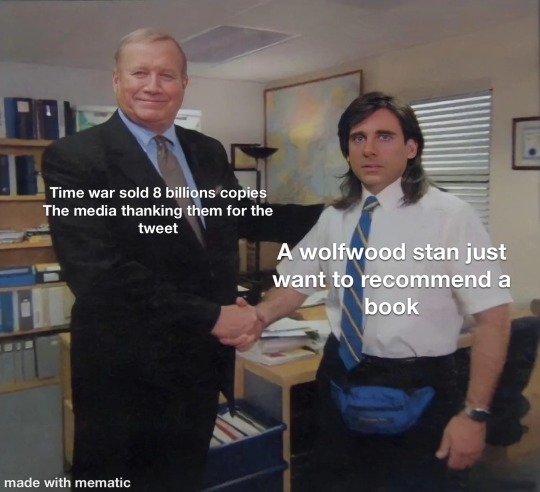
Something incredible just happened on twt right now
#bigolas dickolas wolfwood#trigun#this is how you lose the time war#what a time to be alive#truly the most suffering from success moment#nicholas d wolfwood#THE ARTICLES EVEN WRITE ABT THEM#MR YOSHIHIRO WATANABE BOUGHT THE BOOK#Imagine having bigolas dickolas wolfwood on the news#this will go down as a you just had to be there moment of the trigun fandom#THEY GOT INTO THE WIKI PAGE#CAN WE GET MUCH HIGHER
10K notes
·
View notes
Text
The Wayne manor is not a quiet place.
Someone Is always doing something, talking about anything, teasing, bantering, playfully slandering, so Bruce grew accustomed to noise. Its hard not to, with his nest of birds.
But this particular topic has him on mute;
"Why do YOU get him when he's old?"
" Oh my GOD, Jason, I'm LITERALLY the oldest. You ALWAYS have to get everything!"
Jason isn't at all interested in Dick's dramatics. He wraps all 6'4 inches around Bruce's leg like an affectionate leech. "You're the fucking meanest! You'll probably feed B those gross ass protein shakes and force him to watch re runs of Realest Housewives of Gotham!"
"YOU TRIED TO BLOW HIM UP!"
Cass is strong like a tsunami and silent as a snake, jumping on Bruce's back, beautiful eyes full of threat. " Dad stays. Mine."
Bruce pipes up, " I have a retirement plan--"
"Getting railed everyday at the Kent farm isn't a retirement!"
Tim gives Steph a look of disgust. "Gross."
Damian isn't above pulling out his swords. " If I don't get Baba, everyone is dying. Me included. "
"Damian. What did I say about threatening your siblings with murder?" Bruce asks expectantly.
" Oh, I'm not threatening, baba. I'm making a vow."
Alfred doesn't pry his attention from the chamomile tea he's preparing. " Master Bruce stays with me."
"...Alfred, I don't think you'll...You know, be around when Bruce retires--"
"Was that a contradiction?"
They all gulp. The argument is settled quickly, and Bruce spends the rest of his evening with head on Alfred's lap and his hand in Jason's hair, petting like a cat, and listening to RHOG on the TV.
He loves the noise.
#bruce wayne#dick grayson#jason todd#damian wayne#batfamily#do NOT bring up gotham war okay?? idc#alfred pennyworth#batdad#dc comics#soft bruce wayne#battinson#hes so <33#text#text post#writing
6K notes
·
View notes
Text
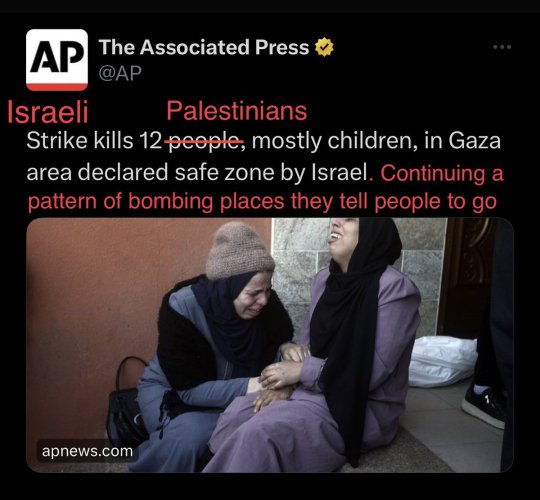
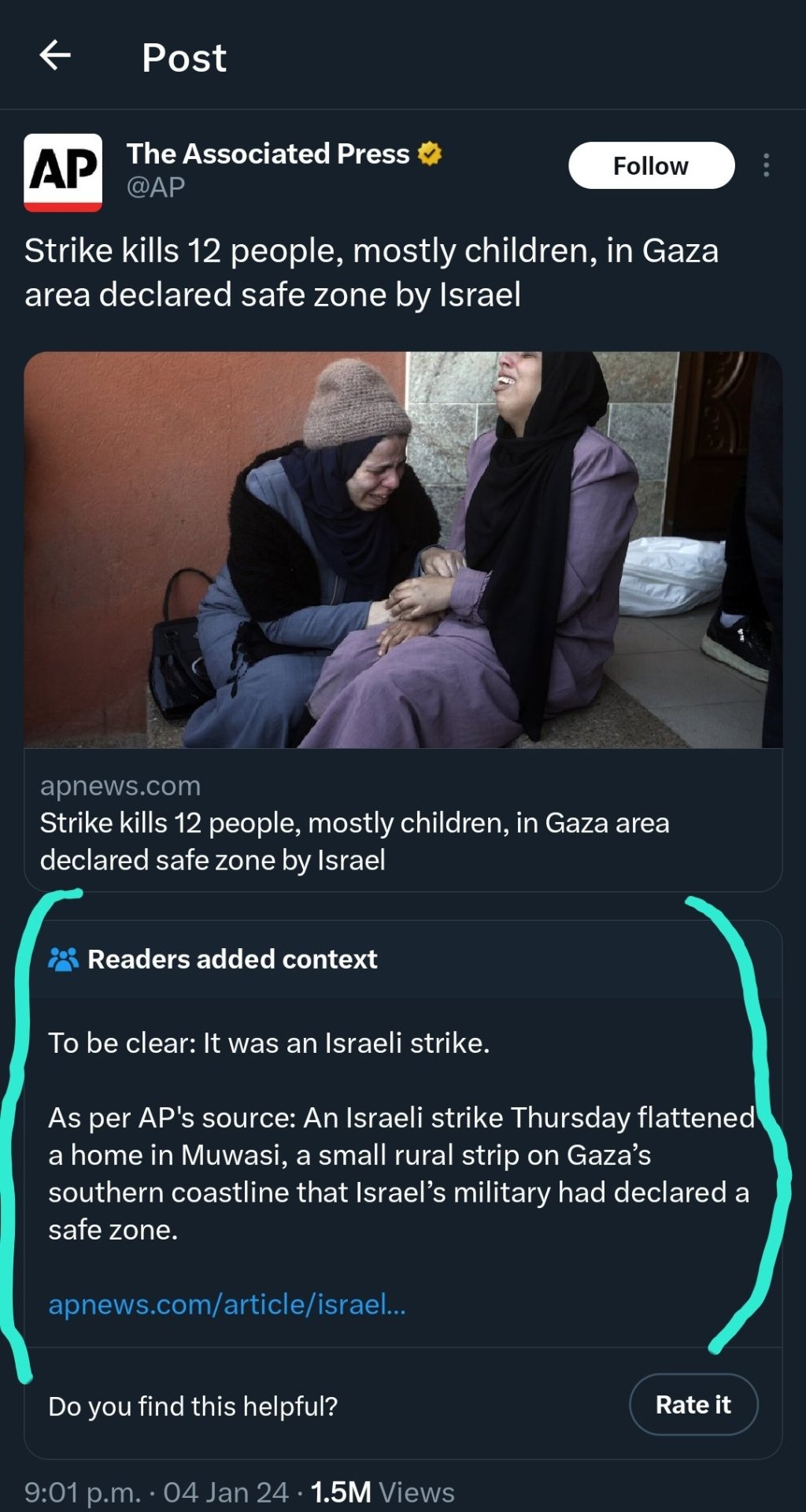
3K notes
·
View notes